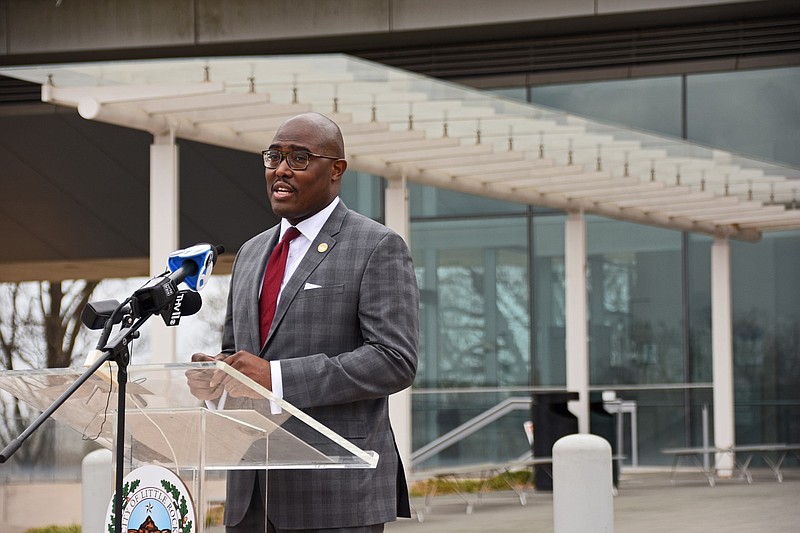Little Rock Mayor Frank Scott Jr. and four other Black mayors from Southern cities in an opinion piece published Wednesday called for "a new Reconstruction" in the wake of the coronavirus outbreak.
Scott co-wrote The Washington Post op-ed along with mayors Steven Reed of Montgomery, Ala., Randall Woodfin of Birmingham, Ala., Chokwe Antar Lumumba of Jackson, Miss., and Adrian Perkins of Shreveport.
The officials urged adoption of President Joe Biden's American Jobs Plan, which the White House says will upgrade roads, bridges and water systems.
The mayors also endorsed a bipartisan water-infrastructure bill called the Drinking Water and Wastewater Infrastructure Act. The legislation was approved in the U.S. Senate in late April but has yet to secure approval in the House of Representatives.
In the op-ed, Scott and his fellow mayors referred to the large-scale suffering and death during the Civil War.
"As African American mayors of five of the Southern cities where much of this carnage unfolded, we can only imagine the devastation. It was hell on earth," they wrote.
During the Reconstruction period, which encompassed slightly more than a decade after the Civil War ended in 1865, efforts were made "to right some of the horrible injustices that marked life for Black people in the Confederacy," they wrote. "It endeavored to cope with incredible suffering and rebuild after four long, terrible years -- to literally reconstruct the country."
But Reconstruction ultimately did not achieve many of its goals, the mayors wrote. They sought to connect the crisis of the 19th century to the covid-19 pandemic.
"Covid-19 was not as calamitous as the Civil War, but it has wrought its own trauma," they wrote, referring to the pandemic's U.S. death toll.
Additionally, the virus "has exposed racial inequities in health care, housing, transportation, infrastructure and our economy," they wrote. "It has destroyed businesses and ripped jobs from our communities, leaving people struggling to put food on the table. And families in urban and rural areas across the South have tried in vain to adapt to online learning without access to affordable, high-speed Internet."
Their piece blamed national-level politicians in Washington for sitting "idly" while infrastructure has crumbled, utility rates have increased and climate change's extreme weather events have increased the pressure on infrastructure.
"We need a modern plan of reconstruction that addresses systemic inequities disproportionately affecting Black and rural Americans," the five mayors wrote. "And we need a plan that doesn't just kick-start our economy, but re-envisions it -- creating well-paying jobs and opportunities for all Americans."
They cited substandard water infrastructure in states like Louisiana, Arkansas, Mississippi and Alabama. "But water infrastructure only scrapes the surface of the disinvestment Southern cities have seen," they added, referring to Internet access in the South.
Negotiations over Biden's infrastructure package are ongoing in the evenly divided Senate, which is split 50-50 between Republicans and Democrats.
Scott endorsed former New York City Mayor Michael Bloomberg in February 2020 during the Democratic presidential primary contest. Bloomberg exited the race several weeks later.
The Little Rock mayor has made his own play for increased investment on the local level with the "Rebuild the Rock" sales-tax package unveiled earlier this year.
The 1 percentage-point increase would bring the city's overall local rate to 9.625% beginning in 2022 and use an estimated $530 million in new revenue over 10 years to improve parks, public safety, infrastructure and early-childhood education.
Little Rock voters will have the opportunity to authorize or vote down Scott's proposed tax increase in a Sept. 14 special election. Members of the city Board of Directors voted to call the election in a 6-3-1 decision Tuesday.
